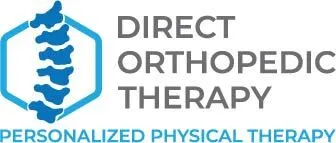It is an ever-evolving approach that responds to new findings in physical therapy. For example, it was formerly thought that physical therapy (PT) was best suited to the elderly, those recovering from surgery, or those with severe musculoskeletal problems, but today, it is used to treat various musculoskeletal ailments and help avoid future injuries. Today’s sophisticated approach to physical therapy can assist anyone, from office workers to professional sports.
This guide breaks down some of the most cutting-edge treatments that many people aren’t aware of but could potentially benefit from.
BFR Therapy (Blood Flow Restriction):
For years, physical therapy and fitness have embraced BFR therapy to assist patients in recovering more quickly and efficiently. Of course, anyone can benefit from this strength-training method, but it’s incredibly excellent for individuals who cannot handle big weight loads, such as the elderly and those recovering from injury or surgery.
Dry Needling of Trigger Points:
In dry needling, a hair-thin monofilament needle is inserted into a trigger point in the muscle, causing the muscle to contract and release, relieving the trigger point and often stimulating the brain to release endorphins during the process. As a result, some patients have immediate relief from muscle pain after just one session of dry needling, while others progressively experience improvement throughout several sessions. Learn more…
Physical therapy for the pelvic floor:
Pelvic discomfort and other pelvic floor dysfunctions can be effectively treated with physical therapy for the pelvic floor. Once the root cause of such an issue has been identified, a professional physical therapist will design a treatment plan that includes education, exercises to strengthen weak pelvic floor muscles, and manual therapy to help you regain self-confidence and relieve your pain.
Come to have your therapy.
Physical Therapy for Headaches and Jaw Pain:
Temporomandibular Joint Disorder (TMJD) is a common cause of headaches and other symptoms, including jaw pain, trouble chewing or swallowing, pain behind the eyes, and neck pain (TMD). A physical therapist can treat TMD, a common disorder that restricts the jaw’s natural function and can be caused by various reasons.
By instructing you on the proper positioning of your jaw, head, neck, breastbone, and shoulders in a range of postures, a physical therapist can help you improve your posture. In addition, they can employ manual treatment to increase joint mobility and muscle flexibility and break up scar tissue that may develop and restore function to muscles and joints in the jaw. A therapist can also give you exercises to help strengthen the jaw muscles to move your jaw more naturally. Reach out to our therapists to get your therapy now.
Therapy for Vestibular and Balance Disorders:
Vestibular disorders, such as vertigo, dizziness, and other balance and spatial orientation problems, can affect every aspect of a person’s life and make them terrified of everyday activities like driving or completing household chores. Physical therapists can assess the vestibular and visual systems and the movement and balance screen to help narrow down the problem’s root cause. The tests will examine sensations, muscular strength, range of motion, coordination, posture, balance, and walking abilities to establish the root reasons for the problem.
Having a vestibular illness can be debilitating, but a physical therapist can help you regain your sense of self-assurance and independence.
Conclusion:
As a result, with the evolution of such a wide range of Physical therapy treatments, recovering from any ailments is hardly an issue for patients today.


